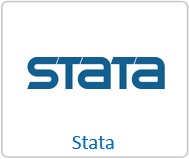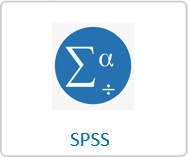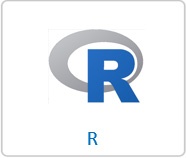 Want to get started with doing great statistical analysis? Excellent.
Want to get started with doing great statistical analysis? Excellent.
There are Four Stages of Statistical Skill and in this article we will introduce you to the topics and some resources to hone the first stage.
Each stage requires developing three interrelated skills: Statistical Knowledge, Data Analysis Skills, and Statistical Software.
Stage 1 is the fundamentals. The roots. There is breadth here, because there are a lot of concepts and skills to master to even get started.
You will find Stage 1 resources helpful if you’re in one of two situations.
- You’re just starting out. You’ve only taken a few statistics classes and you haven’t yet applied it and are feeling a bit overwhelmed.
- You’re already beyond the basics—you’ve run factorial ANOVAs or multiple regressions, or even something more advanced, but you still have some holes in your understanding of the basics.
Unless you do statistics every day, you’re going to have holes. Maybe it’s been a while and you just don’t remember the details.
Or maybe it just never really made sense the first time or you never really got to apply some fundamental concept. So something fundamental like p-values or confidence intervals never really made sense in an intuitive way.
You’ll see this page is split into three main parts, corresponding to the three parts of the basics:
1. Statistical Knowledge
Statistical Knowledge: Tests and Concepts
These are the statistical concepts you need to understand to master the fundamentals. Knowing these will make you the quantitative expert in many organizations.
A good, comprehensive Intro to Statistics course will give you the knowledge for this stage. It starts with basic concepts in statistics like variables and sampling and takes you all the way through one-way ANOVA and simple linear regression.
Even so, a second class or major review of the first one are usually needed for a solid grasp of the concepts.
Have you ever watched a movie where you’re not quite sure what’s happening for the entire first half and you’re just waiting for it all to make sense? Then after the ending puts it all together, you can watch it a second time and pick up a lot of the details that you missed the first time through?
The fundamental stage of statistics is like that.
So first, review the concepts.
- rules of probability
- descriptive statistics
- hypothesis tests
- p-values and statistical significance
- effect sizes
- population, sampling, and sampling bias
- confidence intervals
- outliers
- variation and distributions
- types of variables and levels of measurement
- descriptive statistics
- common bivariate statistical tests: t-tests, chi-square, non-parametrics, tests of proportion, and correlations
- simple linear regression with one continuous predictor
- one-way ANOVAs and post-hoc tests
- fundamentals of power and sample size
Here are some resource pages to help you do that:
Data Analysis Skills
Once you understand the concepts, there are still data analysis skills you need to develop. They fall into four main categories.
Planning and Choosing a Data Analysis
Data Preparation
Running the Analysis
Communicating Results
Get resources for all of these on our Data Analysis Practice and Skills page.
Get Started with Software
Now you need to be able to get your software to do all the data preparation, graphs, tables, descriptives, and statistical tests. Start with one software at this stage and learn its defaults, ways of working with data, and vocabulary.
I’ve listed below a few software resources to get you started. Click on each software logo to get a more comprehensive list of resources for that software.



